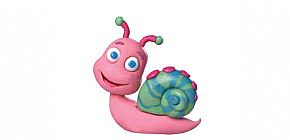Stomach Aches In Infants: When To Worry
 |
|
Stomach aches are among the most common complaints made to pediatricians, second only to the common cold and cough. In essence, stomach aches can accompany any infant/toddler illness. That being said, studies indicate that in most cases, stomach aches should not cause any concern. They stem from situation that are simple and easy to treat at home, such as infant gas, mild constipation and viruses.
How to identify stomach aches in infants
Sometimes, it can be challenging to identify stomach aches in newborns, as they respond to many forms of discomfort with tears. In order to identify crying associated with stomach aches, it is recommended to pay attention to the following signs:
● Stomach muscle contractions: In many cases, when suffering from a stomach ache, infants will contract all of their body’s muscles, ball their fists, bring their legs up towards their belly and point their head downward, towards their chest.
● High-pitched crying that rises and falls: An infant suffering from pain’s cry will be accompanied by yelps that differ from more monotonous hunger or tiredness-related tears.
● Body flailing: An infant who suffers from stomach aches is likely to respond by failing their body about, even when sleeping or eating.
● A unique sign for identifying gas: Roughly 30% of infants will suffer from gas (colic) during their first months of life. Crying out in pain as a result of gas will generally appear during set hours during the afternoon and evening, and could last two to three hours at a time. The infant’s stomach will likely be bloated.
Common causes for infant and toddler stomach aches
Infant gas (colic)
A buildup of gas in the infant’s digestive system between the ages of two weeks and three months. The cause of gas is unknown, but experts estimate that it is due to the digestive system’s immaturity at birth. To help relieve gas pain you can cradle your infant, gently massage their belly in circular motions and in a clockwise direction, or administer medication designed to relieve gas pain (approved by the Health Ministry’s Pharmaceuticals Department for use by infants from birth). Infant gas is a common and normal experience, one that does not endanger the infant’s health or development in any way. In most cases, the gas will pass on its own after the infant’s third month birthday.
Reflux (return of food from the stomach up the esophagus)
Infant reflux occurs when partially digested food returns up from the stomach and towards the esophagus, causing a burning sensation. It is generally the result of an immature sphincter separating the stomach and esophagus, which sorts itself out as the infant develops. To relieve the symptoms of reflux, it is recommended to avoid laying your infant down after feeds, feeding your infant small meals and, should your doctor recommend, switching over to anti-reflux formulas, or thickening your infant’s food, to avoid its return up the esophagus.
Food sensitivities
Rarely, stomach aches step from a sensitivity to certain foods. When talking about formula-fed infants, the sensitivity is generally to dairy products. To identify a food sensitivity, it is recommended to switch over to soy-based formula (after discussing with your pediatrician) and see if relief is experienced. In most cases, actual allergies do not develop before the age of six months, when the immune system is developed.
Constipation
Tends to appear in infants who have begun to eat solids, as well as in formula-fed infants and is characterised by hard bowel movements that come every three or more days. To relieve constipation, you can offer your four-month-old (and up) a healthy and nutritious tasting menu of pureed fruits, vegetable soup and water. While constipated, the infant’s stomach can look bloated, and crying will most likely begin after feeds, as the infant strains to make. It is important to note that a lack of bowel movements over the course of a few days, particularly among calm, nursing infants, can be 100% normal.
Intestinal infections
Stomach aches accompanied by diarrhea or vomiting can indicate the presence of a viral or bacterial infection in the intestines. In such a case, you should take your infant to the doctor and monitor their appetite and fluid intake, to prevent dehydration. For newborns, the onset of dehydration can be extremely fast, even within the course of a single day. As such, in any case of decreased appetite or liveliness that is accompanied by diarrhea and vomiting, medical attention is recommended.
Signs you need to take your infant to the doctor:
● Stomach ache accompanied by fever
● Stomach ache accompanied by repeat vomiting
● Lengthy stomach ache not relieved by a warm bath or rest
● Stomach ache accompanied by pain while urinating
● Blood in urine or stool
● Stomach ache accompanied by a lowered appetite for a lengthy period of time
● Stomach ache accompanied by swelling or sensitivity in the “bikini area” (in girls) or testicles (in boys)
● Stomach ache accompanied by persistent constipation
There are quite a few misperceptions about infants and constipation. The toddler’s intestines work slower than those of an adult, and it can therefore ...
The first month following childbirth is generally the most charged period your family will experience. Your hormones are raging, your infant is gassy ...
From the moment your child first enters the Tipat Chalav (well baby check-up clinic) system, you, the parent, will learn all about growth curves. What ...


.jpg)
.jpg)
.jpg)
.jpg)



.jpg)
.jpg)
.jpg)
.jpg)

.jpg)


.jpg)


Contact us